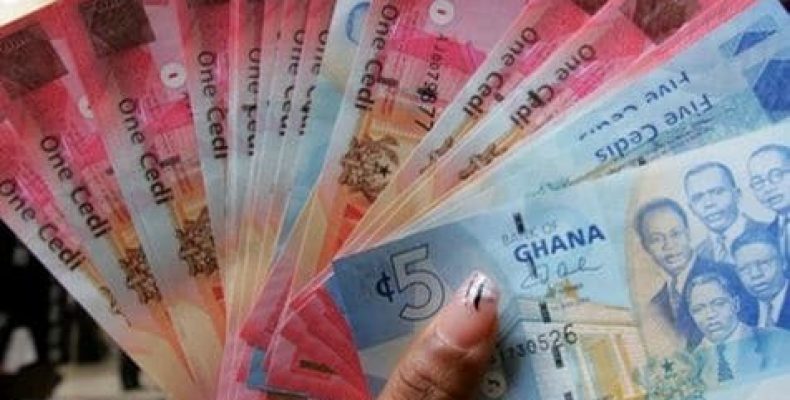Head of Economics Department at the University of Ghana, Professor William Baah Boateng says increasing exports is not the solution to Ghana’s financial woes as the cedi depreciates.
According to him, that is merely a textbook solution which takes years to solve a problem.
What Ghana needs, he says, is an immediate solution to the rapidly depreciating cedi and the consequent ailing economy.
“Well I think it’s funny. It’s funny when we begin to look at just one side of the problem. And since I was a student in secondary school from 1984 coming to sixth form in 1989 to 1991, we’ve heard increasing exports and reducing imports and so on.
“And I think we need to look at the current situation and not go to the textbook and continue to quote. The situation that we are finding ourselves is not linked to export and import,’ he said.
Speaking on JoyNews’ PM Express Business Edition, he stated that Ghana’s problem would have to do with its capital account.
According to him, the country fares poorly at generating foreign exchange thus creating too much pressure on the economy when it is time to pay back debts.
“So we look at the balance of payment. I think we’ve had some positive trade balance, not as much as we expect, and of course, we also have the current account which is not doing badly. But when you go to the capital account that is where the problem is.
“Because having gone to the Euro market to borrow, it will get to a time where the debt will mature and we’ll need to pay back. So paying back if you’re not able to generate enough foreign exchange and also revenue, then you’re going to have a challenge in paying back,” he said.
He explained that why the currency depreciation is being felt most strongly now is due to the government’s inability to go borrow on the Euro market due to the several downgrades it has been hit with by international rating agencies.
“I can tell you if Ghana had not been rated downwards, you know the rating agencies had rated us downwards and that has put us in a situation where we cannot borrow at a competitive rate. So if we had not gone there perhaps the situation that we find ourselves we could have gone to the Euro market to borrow to be able to tame the exchange rate.
“But here we are unfortunately we cannot go and if we have to go it will be at a very high rate and that is the challenge we find ourselves currently. So it is not as we say exports and imports per se, but we need to look at the capital market. When you want to look at exports as the way we need to solve our exchange rate problem, it is a long term kind of solution you’re prescribing because there is export elasticity. I mean if we want to increase our exports of cocoa, it doesn’t take a day or two. It takes years,” he said.
Latest Stories
-
Patrick Atangana Fouda: ‘A hero of the fight against HIV leaves us’
29 minutes -
Trinity Oil MD Gabriel Kumi elected Board Chairman of Chamber of Oil Marketing Companies
1 hour -
ORAL campaign key to NDC’s election victory – North America Dema Naa
1 hour -
US Supreme Court to hear TikTok challenge to potential ban
1 hour -
Amazon faces US strike threat ahead of Christmas
2 hours -
Jaguar Land Rover electric car whistleblower sacked
2 hours -
US makes third interest rate cut despite inflation risk
2 hours -
Fish processors call for intervention against illegal trawling activities
2 hours -
Ghana will take time to recover – Akorfa Edjeani
3 hours -
Boakye Agyarko urges reforms to revitalise NPP after election defeat
3 hours -
Finance Minister skips mini-budget presentation for third time
3 hours -
‘ORAL’ team to work gratis – Ablakwa
3 hours -
Affirmative Action Coalition condemns lack of gender quotas in Transition, anti-corruption teams
4 hours -
December 7 election was a battle for the ‘soul of Ghana’ against NPP – Fifi Kwetey
4 hours -
Social media buzzing ahead of Black Sherif’s ‘Zaama Disco’ on December 21
4 hours

